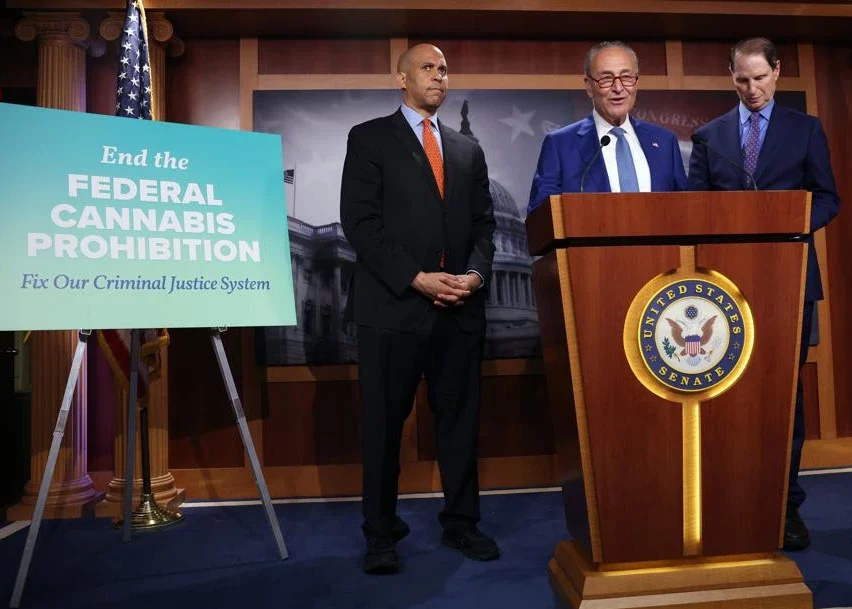
Forbes: Predicting Politics In The Cannabis Legalization Debate
By Lewis Koski, COO, Metrc
When Supreme Court Justice Clarence Thomas calls the federal government’s approach to cannabis policy a “contradictory and unstable state of affairs,” you know the calls for reform have reached the highest levels. But for many of us in the industry, we weren’t surprised by this timely statement from what some may consider an unlikely advocate for federal policy changes.
That’s because the cannabis industry is used to seeing government officials, on both sides of the aisle, support their state’s cannabis industry at different points in the legalization process. While it’s easy to assume Democrats are pro-legalization and Republicans are anti-legalization, recent history shows us politics can shift after a state legalizes cannabis. Often, the shift makes it more palatable for elected officials to extend a cooperative hand across the aisle. It is not uncommon for a conservative elected official to oppose legalization because they see it as criminal activity, and then reverse course after their state legalizes to support fewer regulations for cannabis businesses. Conversely, a liberal elected official might champion legalization on the basis of social and criminal justice reform, while later advocating for comprehensive regulations for cannabis businesses due to public health concerns.
When it comes to traditional political wrangling, predicting an elected official’s cannabis policy stance can be counter intuitive. It has defied party lines, and in many ways, risen above the hyper partisan politics of other topics like immigration, health care, and voting rights. But depending on the issue area focus of legalization, members of a given party may not agree on the best path forward.
Most recently – and for the first time in our country’s history – the Senate Majority Leader, a Democrat, unveiled a framework for legalization alongside two other Democratic Senators. But President Biden said even if a full legalization bill made it through Congress and to his desk he might veto it. And in his first 200 days in office, President Biden also prevented Washington D.C. from starting an adult-use cannabis market by withholding federal funds.
Still the President has repeatedly said he supports states’ rights when it comes to cannabis legalization. But in the states, much like on Capitol Hill, some Democrats aren’t comfortable opening legal markets without federal cover. For instance, Hawaii Democratic Governor David Ige and the Democratic supermajorities in both statehouse chambers held up legalization efforts this year due to concerns about its Schedule 1 substance distinction.
Meanwhile, the SAFE Banking Act, a bill to allow cannabis businesses access to banking services and no longer force them to operate in all cash, passed the U.S. House this year with a bipartisan vote of 321-101. The SAFE Banking Act also has a companion bill in the Senate with nine Republican cosponsors. Among them are Senators Roy Blunt (R-MO), Bill Cassidy (R-LA), Susan Collins (R-ME), and Steve Daines (R-MT), who hail from medical cannabis-friendly states.
But commonsense, bipartisan legislation like this should not come as a total surprise. Senate Republicans have a recent history of supporting cannabis legalization. Former U.S. Senator Cory Gardner, from my home state of Colorado, became a champion for state legalization programs on Capitol Hill several years after Colorado launched adult cannabis sales in 2014. And in 2018, he threatened to block all Department of Justice nominations after the Trump administration rescinded previous federal guidance, including the Cole Memo.
And in the states, ruby red Oklahoma has the largest medical cannabis market in the country with more licensed marijuana businesses than any other state and about 10% of its population registered as patients. The result of a successful ballot initiative, the Sooner State’s medical cannabis program is supported by its Republican-held legislature and Republican Governor Kevin Stitt.
For traditionally conservative Republicans, supporting their state’s cannabis legalization frameworks means supporting states’ rights, reduced regulatory burdens for businesses, and the success of a new industry in the free market. And for liberal Democrats, supporting this new industry means the opportunity to draft strong government regulations and support underrepresented minorities. So far, these seemingly counter intuitive political stances have led to more collaborative outcomes. Both parties have proven this is possible at the state level, and members of Congress and the President should endeavor to strike the same harmony at the federal level.
Also published at: https://www.forbes.com/sites/lewiskoski/2021/07/30/predicting-politics-in-the-cannabis-legalization-debate/?sh=2a3ee89d5279
